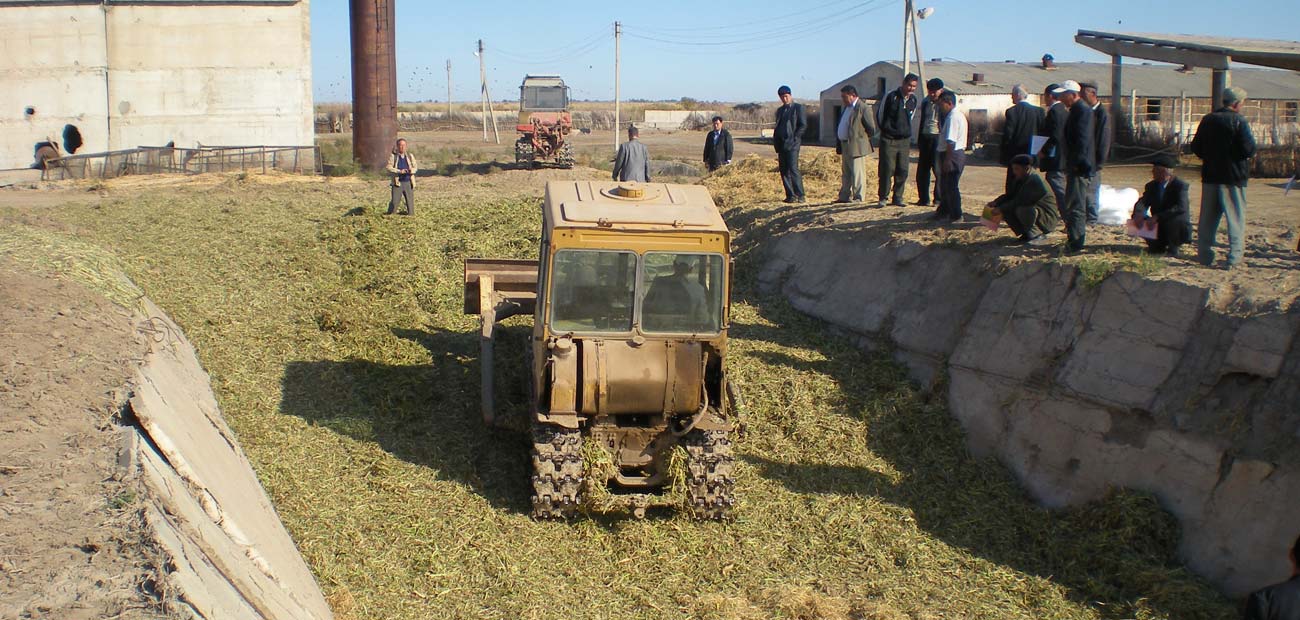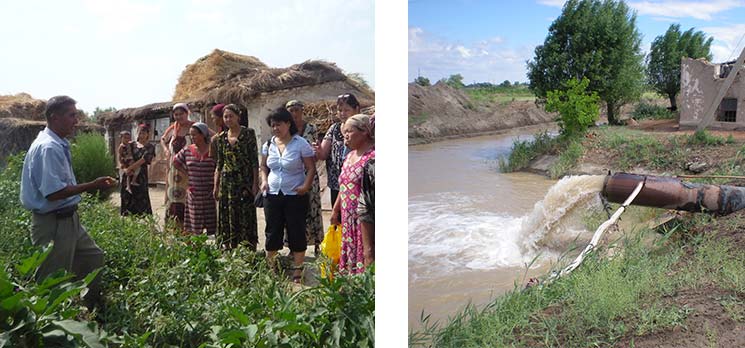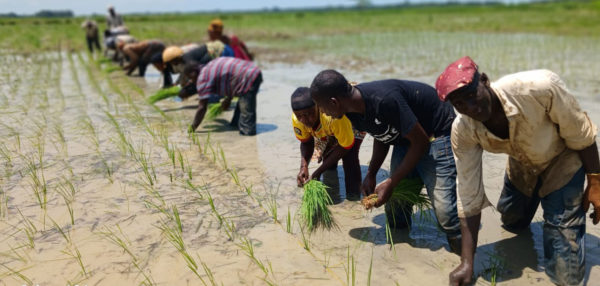Helping Farmers in Ex-Soviet Republic
OC Global study created a master plan and pilot projects to improve farmers’ livelihoods.

Challenge
Support the enhancement of agricultural production in a former Soviet republic
After its independence from the former Soviet Union in 1991, the Republic of Karakalpakstan in Uzbekistan has carried out various innovations and institutional reforms to dissolve traditional farm collectives (kolkhozes) and introduce a market economy. However, in the process of transitioning to the new economic system, the agriculture sector, which plays a major role in the national economy, faced various hardships.
The objectives of this study were:
1) to formulate a regional development master plan focused primarily on the agriculture sector throughout the 11 districts of the Republic of Karakalpakstan
2) to build capacity within the government of Karakalpakstan and other relevant organizations for planning and implementing the projects identified in the master plan
The study focused on enhancing agricultural production by dehkans (peasants) and fermers (agricultural enterprises) through market economy principles. Activities concerning state-controlled crops were excluded from the scope of the study.
Services
The services were provided in two phases, first involving studies and development of a master plan, and second the implementation of a set of pilot projects to demonstrate the validity of the master plan and its components.

Results
Phase 1 study: Preparation of draft master plan and draft action plan
- Gain understanding of the conditions existing in the study area through data collection, workshops with farmers, questionnaires and field surveys
- Analysis of present conditions
- The draft master plan was formulated following the vision that, “People will improve their livelihood through the development of market-oriented farm management and good use of backyard farming, in consideration of the regional environment”.
- This draft master plan included recommendations for developing the following sub-sectors:
a. agriculture
b. livestock and fisheries
c. irrigation and drainage
d. distribution, marketing, and processing - Formulation of the draft action plan showing the implementation plan for draft master plan activities
- Formulation of pilot projects to verify that the draft development plans had reasonable targets and their implementation was effective
Phase 2 study: Implementation of the pilot projects
- Pilot projects were implemented in the following seven categories:
1) preparation of technical manuals for farmers
2) trial production of melons and other promising crops
3) promotion of vegetable production by women in backyards (tamarka)
4) package program for livestock development including improvement of breeding, forage/silage and milk processing
5) improvement of internal irrigation canal system and management by water users
6) improvement of water use and drainage conditions in the field
7) establishment of model agro-firms including vegetable and fruit processing - The pilot projects were evaluated at the interim and final implementation stages, utilizing product data management. The evaluation was based on monitoring surveys, interview surveys and performance evaluation in participatory workshops. Evaluation criteria included: relevance, effectiveness, efficiency, impact, and sustainability. Comprehensive.
- The pilot project evaluations were used to revise and finalize the project Master Plan and Action Plans.
Location
Uzbekistan
Official Title
The Study on the Regional Development in Karakalpakstan
Project Type
Agriculture and Rural Development Planning
Client
JICA
Project Period
2008 – 2011
Sustainable Development Goals (SDGs)
Pave the way for farmers to achieve fruitful results as zero hunger by drafting master plan and action plan.



